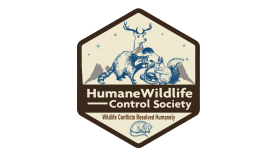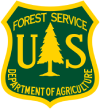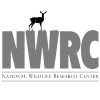Humane Wildlife Control in St. Paul, MN
The Humane Wildlife Control Society recommends non-invasive solutions to resolve human-wildlife conflicts. This includes:
Determining if the issue needs to be addressed at all
Opting for preventative measures first
Opting for wildlife exclusion as opposed to trapping
If trapping is the only way to solve the problem do so humanely
The Humane Wildlife Control Society screens candidates prior to recommendation. Our process requires any company we recommend to meet the following criteria:
Is properly licensed in Minnesota for wildlife control
Carries appropriate business licenses and insurance
Complies with all Minnesota laws and regulations for wildlife control
Adheres to the humane principles listed above.
In St. Paul, Minnesota we recommend Humane Wildlife Removal St. Paul for professional wildlife control services. This is a private company that charges for their services.
Contact Information:
Wildlife Removal Minneapolis
763-703-2600
If you have any wildlife issues that can be handled by the state government agency for free, the Minnesota Wildlife Commission can help.
State Contact Information: 651-296-6157
The State Department of Agriculture may also be able to address your wildlife problem for no charge.
USDA Contact Information: (651) 201-6219
Humane Wildlife Control in St. Paul Why Humane Control is Mandatory Required Control Methods Exclusion: Seal every entry point—attic vents, chimneys, and foundation cracks—with steel mesh or concrete. One-way doors must be used to evict animals like bats or squirrels without harm. Half-measures won’t cut it—secure your property completely. Why There’s No Alternative
A Non-Negotiable Standard for Responsible Management
St. Paul, Minnesota, the state’s capital along the Mississippi River, blends urban density with natural corridors like Como Park and the river bluffs, drawing wildlife—raccoons, squirrels, bats, and skunks—into our neighborhoods and businesses. As a property owner, you face serious risks: structural damage, disease spread, and safety threats. Humane wildlife control is not optional—it’s the only acceptable solution. This guide demands your immediate attention and strict adherence to ethical, effective practices.
Wildlife intrusions aren’t trivial. Raccoons tear into roofs, bats carry rabies (a documented risk in Minnesota per state health data), and squirrels ruin insulation or wiring, posing fire hazards. Lethal methods—poisons or kill traps—are forbidden. They’re cruel, illegal under Minnesota statutes, and reckless, endangering pets, people, and ecosystems. Humane control is the firm standard here—it resolves conflicts without compromise and complies with state and local laws. No exceptions.
You will implement these proven, non-lethal strategies:
Relocation: Hire licensed professionals to live-trap wildlife and relocate it to approved habitats, per Minnesota Department of Natural Resources (DNR) regulations. This isn’t a DIY job—untrained attempts violate laws and fail.
Prevention: Eliminate all attractants. Lock trash bins, remove outdoor food, and clear yard debris. If you don’t, you’re inviting wildlife back—take responsibility now.
St. Paul’s Uncompromising Reality
St. Paul’s harsh winters drive animals indoors—DNR records show peak activity from November to March—while spring thaws flood yards with skunks and raccoons. The Mississippi River and green spaces like Harriet Island amplify this pressure, especially in neighborhoods like Summit Avenue or Lowertown. Delaying action isn’t an option; it escalates damage and costs. Humane control is demanded to protect your home and St. Paul’s ecological balance—act decisively.
Safety: No toxic residues or dead animals—just secure outcomes.
Legality: Meets St. Paul ordinances and Minnesota Statute 97A—violations bring fines.
Integrity: Preserves our city’s commitment to ethical stewardship.
Your Obligations
Act Immediately: Spot signs—droppings, noises, or gnawing—and respond now. Waiting is reckless.
Use Experts: Only DNR-licensed operators with humane credentials are acceptable. Anything less risks failure and penalties.
Stay Proactive: Maintain your property year-round—laxness isn’t tolerated.







